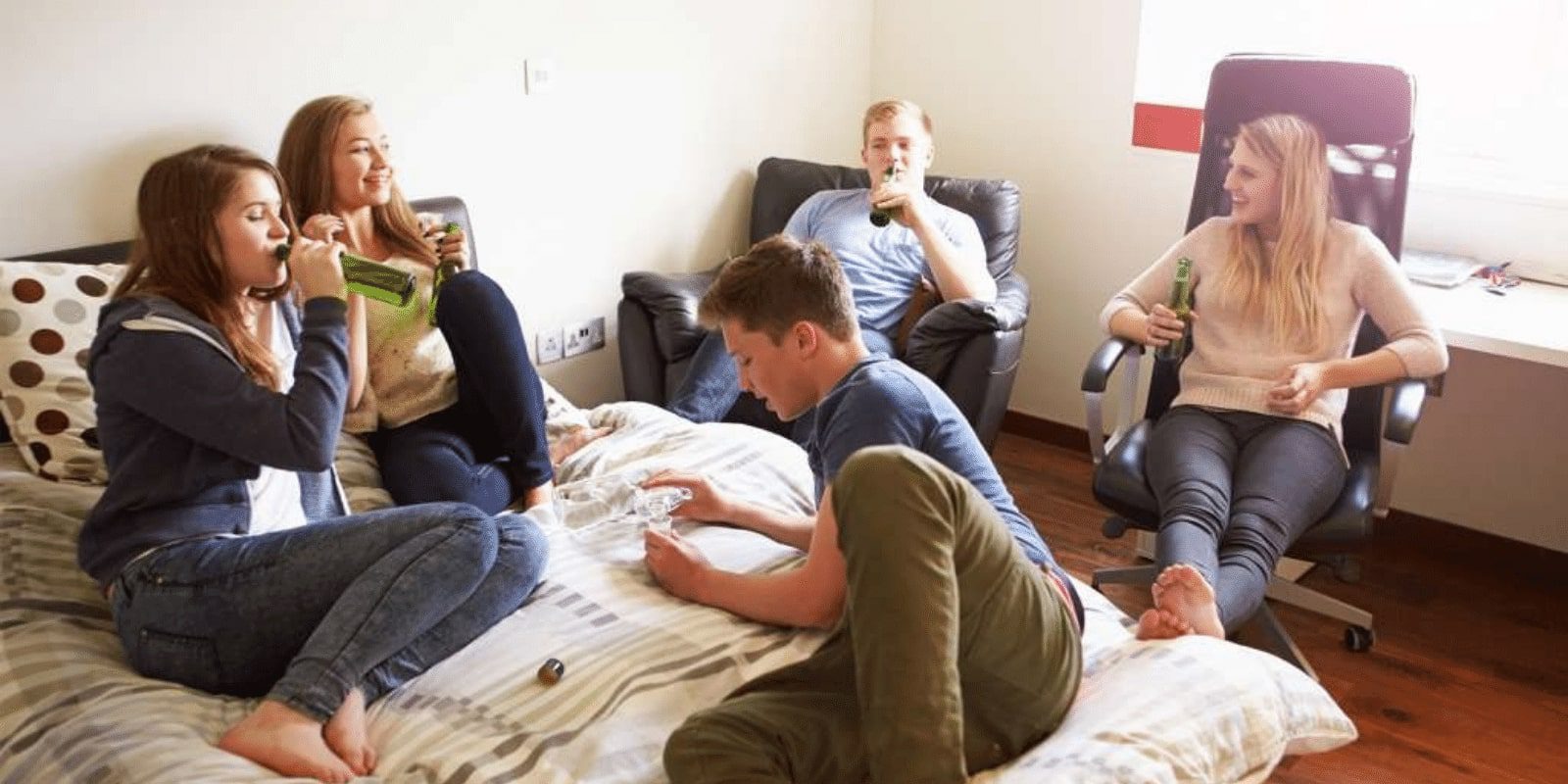Drinking on College Campuses


For many young people, drinking alcohol on college campuses is considered a rite of passage and part of the college experience. Often, this is a young person’s first experience with increased independence, living away from home and creating new friendships. However, excessive drinking in college has become a significant public health issue.
Parties and drinking may be viewed as a “normal” part of the college experience—but it certainly is not harmless:
With so many college students binge drinking, it can be hard to know whether your young adult has a problem or is simply adapting to the culture on their campus. Regardless of whether your young adult is headed down a path towards addiction, binge drinking alone can cause serious problems.

If your young adult is displaying these signs, they may need help. Contrary to popular belief, it is possible to participate fully in college life without binge drinking, and there are schools that do a great job of supporting this. For example, University of Colorado Boulder has a recovery center that provides support and community for those choosing to live substance-free.
Sandstone Care works specifically with teens and young adults struggling with binge drinking, alcohol use disorder, and other substance abuse concerns. We partner with local universities to help our clients have the college experience they’ve imagined, without the destructive patterns of drug and alcohol abuse.



Our virtual IOP program offers the same programming that we offer in person, all online – this is ideal for those who live too far to drive to an addiction center, have transportation issues, or have health concerns that make in-person treatment challenging.